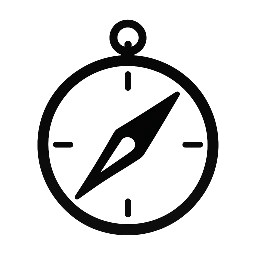There’s a tendency in advertising and marketing to address every trouble by doing extra. Add one more channel, rotate up a brand-new project, test 5 variants, jump right into one more meeting, spin up five more dashboards. Eventually, you’re not prioritizing, you’re just responding.
I have actually existed more times than I wish to confess. Yet a while back, I came across a concern from Tim Ferriss (from his blog post” 17 Concerns That Changed My Life ) that changed exactly how I consider job:
- “Suppose I could only deduct to resolve issues?”
That idea stuck to me. What if rather than asking what extra I could do, I questioned what I could get rid of? What was I doing out of routine, responsibility or stress and anxiety that wasn’t in fact relocating the needle? Ends up, a whole lot.
Reduction as a method
Ferriss also positions this question:
- “If I could only function 2 hours weekly on my business, what would I do?”
Currently I do not function 2 hours a week (I want), yet the restraint is useful. It forces clarity and impact over volume. When time is tight, it guides focus on what issues and, much more importantly, what doesn’t.
This is particularly essential currently, provided the quick adoption of AI and automation and the desire to do even more. I’m not versus being efficient, however the effort has to be effective.
That’s when I started maintaining a do-not-do checklist, a principle I first came across in Ferriss’s writing.
Dig deeper: Exactly how online marketers can break free from decision exhaustion
What’s a do-not-do listing?
It’s specifically what it sounds like: a short list of tasks, habits or default responses I have actually purposefully determined not to spend energy on– or a minimum of only when it will genuinely be impactful.
This isn’t a performance hack or some creative order of business application. It’s more of an attitude filter, something I take another look at frequently to remain focused on the job that drives outcomes.
Below are a few genuine products from my list over the years (a few of these are from various other Ferriss sources, such as “The 4 -Hour Workweek”).
Don’t start your day with e-mail
This might be challenging for some roles that are a lot more admin-focused. Genuinely, most emails are not fire drills and call for an action within the very first hour or by the morning. This space allows for building, producing or deep reasoning before reactive email reactions.
Don’t take in LinkedIn frequently
After examining my display time, I deleted the app. I have actually significantly reduced my LinkedIn use. Think what? I’m less nervous about what I require to do, haven’t missed out on anything crucial and have even more time back.
Do not consume material simply to take in material
I’m normally interested and constantly intend to gain from others:
- What they’ve tried.
- What’s functioning.
- What I could be missing out on.
However I recognized it ended up being overwhelming and ineffective. Now, I just look for material tied to a skill or difficulty I’m actively servicing. I locate someone who’s done it well and then disregard the rest.
Dig deeper: Marketers ought to make time for time administration
Do not take on projects I can not set
Projects with consistent start-stop rhythms drain me. Job switching eliminates energy and burns energy.
I stay clear of anything that doesn’t allow for focused, batch-style job unless it’s a support for a customer or friend I wish to assist.
Do not arrange meetings two days a week
This set’s substantial for me. Having no-meeting days lets me do deeper job or procedure huge decisions, whether for clients or inner approach. I understand this isn’t easy for each group, yet I have actually observed exactly how typically I’m on calls with 5 + people that don’t require to be there.
Internally, we’ve been asking more often: Does this individual requirement to sign up with live? Or can we capture them up asynchronously? It’s not about reducing individuals out, it’s about valuing their time.
A few of these might seem tiny or noticeable, but over time, they create space– mentally and logistically– for deeper work. By cutting sound, my group has had the ability to invest even more time on understandings that really drive outcomes.
Why this jobs (especially in advertising)
Marketing is among those functions that will load all the time you give it. There’s constantly an additional examination to run, another angle to explore, one more record to draw. If you’re not cautious, you can spend entire weeks on work that looks hectic however does not in fact move anything ahead.
The do-not-do listing isn’t around doing much less for more time to cool. It has to do with eliminating noise so you can do things that matter.
In my very own work (running a boutique performance advertising and marketing agency), this has actually meant:
- Shorter, a lot more focused inner phone calls.
- Quick 15 -minute interior debriefs rather than 30 or 60 -minute conferences.
- Not having check-ins for the sake of having check-ins.
Dig deeper: Marketing’s inner game: Unlocking the power of natural productivity cycles
Just how to develop your own do-not-do listing
This doesn’t need to be expensive. I began mine in a blank Google Doc. Below’s just how to start.
- Audit your week: Check out last week’s schedule and task list. What drained your energy? What really did not create a clear result?
- Ask, “If I quit doing this, what would damage?”: If the solution is “nothing that matters” or “I ‘d feel guilty,” that’s a hint.
- Establish restraints: T ry Ferriss’ questions: What if I could just deduct to solve troubles?
- If I could only work 2 hours this week, what would certainly I do– and what would certainly I miss?
- It’s severe, but that’s the factor. In some cases you require an extreme lens to spot what actually matters.
- Create your first 3 – 5 do-not-dos: Make them specific and personal. This is about releasing on your own from low-leverage habits.
- Revisit regular monthly: This isn’t a one-and-done listing. Top priorities change. Add and deduct as needed.
A couple of ideas to take into consideration
What should be on your listing? Right here are some pointers:
- Do not react to every email promptly.
- Don’t begin the day in conferences, safeguard a minimum of one morning a week.
- Don’t develop reports no person checks out. Ask people if they are actually utilizing these reports.
- Don’t fail to even more networks, double down on what’s functioning.
- Do not attend brainstorms without clear purposes.
And one I have actually leaned into heavily this year:
- Don’t confuse motion with progress.
Dig deeper: From friction to circulation: An online marketer’s secret efficiency engine
Flip the script: Try the do-not-do mindset
This isn’t a wonder drug– you won’t instantly cut your work in half or turn your group into a performance equipment over night. Yet a do-not-do list gives you something equally as useful: a pause. And frequently, that’s all you require to go back, reset and make far better choices.
If you have actually been really feeling stretched thin or spread, turn the manuscript. Do not ask, “What else should I be doing?” Ask rather, “What would occur if I quit doing this?”
That solitary change in perspective can create the area for much deeper work, more clear concerns and results that really move the needle.
Gas up with cost-free advertising understandings.
Contributing authors are invited to create material for MarTech and are chosen for their proficiency and payment to the martech community. Our contributors function under the oversight of the content staff and contributions are looked for high quality and relevance to our readers. MarTech is owned by Semrush Factor was not asked to make any type of straight or indirect points out of Semrush The opinions they express are their very own.
Suggested AI Advertising And Marketing Tools
Disclosure: We may make a payment from associate links.
Initial protection: martech.org


Leave a Reply